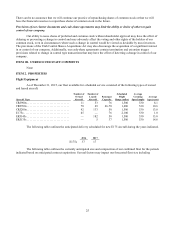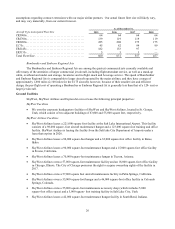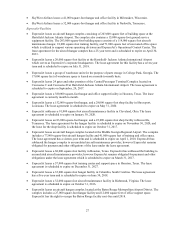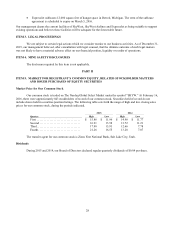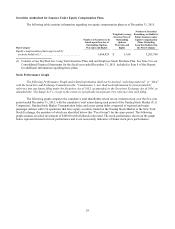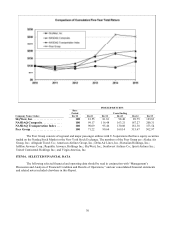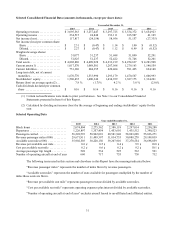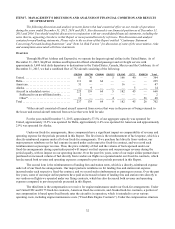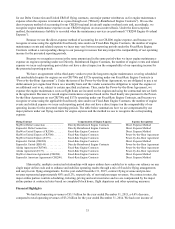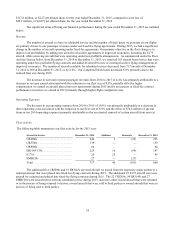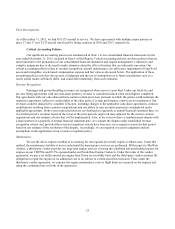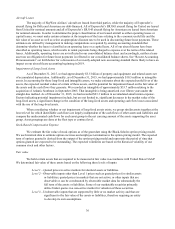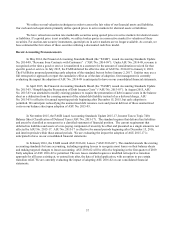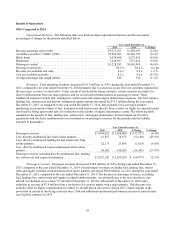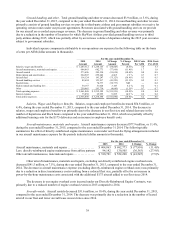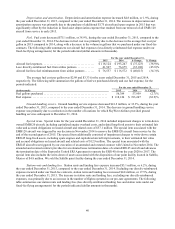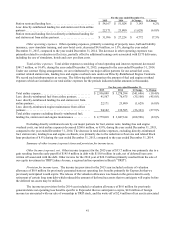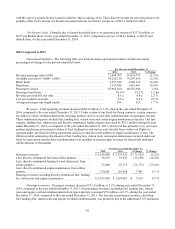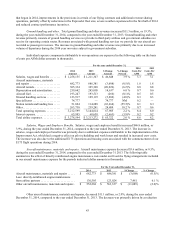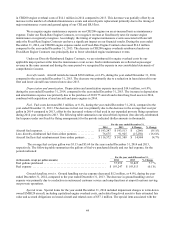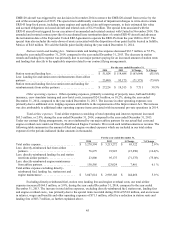SkyWest Airlines 2015 Annual Report Download - page 39
Download and view the complete annual report
Please find page 39 of the 2015 SkyWest Airlines annual report below. You can navigate through the pages in the report by either clicking on the pages listed below, or by using the keyword search tool below to find specific information within the annual report.35
Fleet Developments
As of December 31, 2015, we had 45 E175 aircraft in service. We have agreements with multiple major partners to
place 37 and 17 new E175 aircraft into fixed-fee flying contracts in 2016 and 2017, respectively.
Critical Accounting Policies
Our significant accounting policies are summarized in Note 1 to our consolidated financial statements for the
year ended December 31, 2015, included in Item 8 of this Report. Critical accounting policies are those policies that are
most important to the preparation of our consolidated financial statements and require management’s subjective and
complex judgments due to the need to make estimates about the effect of matters that are inherently uncertain. Our
critical accounting policies relate to revenue recognition, aircraft maintenance, aircraft leases, impairment of long-lived
assets and intangibles, stock-based compensation expense and fair value as discussed below. The application of these
accounting policies involves the exercise of judgment and the use of assumptions as to future uncertainties and, as a
result, actual results will likely differ, and could differ materially, from such estimates.
Revenue Recognition
Passenger and ground handling revenues are recognized when service is provided. Under our fixed-fee and
pro-rate flying agreements with our code-share partners, revenue is considered earned when each flight is completed.
Our agreements with our code-share partners contain certain provisions pursuant to which the parties could terminate the
respective agreement, subject to certain rights of the other party, if certain performance criteria are not maintained. Our
revenues could be impacted by a number of factors, including changes to the applicable code-share agreements, contract
modifications resulting from contract renegotiations and our ability to earn incentive payments contemplated under
applicable agreements. In the event contracted rates are not finalized at a quarterly or annual financial statement date, we
record that period’s revenues based on the lower of the prior period’s approved rates adjusted for the current contract
negotiations and our estimate of rates that will be implemented. Also, in the event we have a reimbursement dispute with
a major partner at a quarterly or annual financial statement date, we evaluate the dispute under established revenue
recognition criteria and, provided the revenue recognition criteria have been met, we recognize revenue for that period
based on our estimate of the resolution of the dispute. Accordingly, we are required to exercise judgment and use
assumptions in the application of our revenue recognition policy.
Maintenance
We use the direct-expense method of accounting for our regional jet aircraft engine overhaul costs. Under this
method, the maintenance liability is not recorded until the maintenance services are performed. With respect to SkyWest
Airlines, a third-party vendor provides our long-term engine services covering the scheduled and unscheduled repairs for
engines on our CRJ700s and E175s operated under our Fixed-Rate Engine Contracts. Under the terms of the vendor
agreement, we pay a set dollar amount per engine hour flown on a monthly basis and the third-party vendor assumes the
obligation to repair the engines at no additional cost to us, subject to certain specified exclusions. Thus, under the
third-party vendor agreement, we expense the engine maintenance costs as flight hours are incurred on the engines and
using the contractual rate set forth in the agreement.


